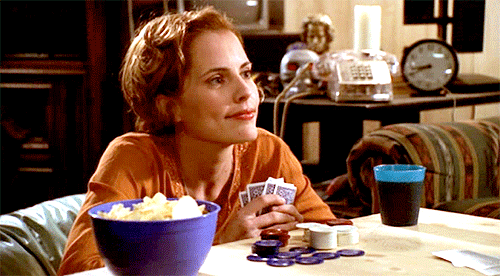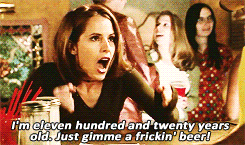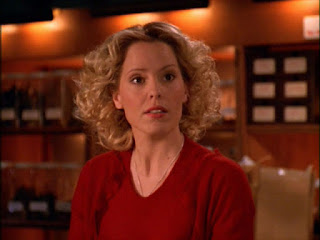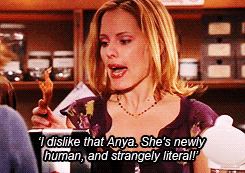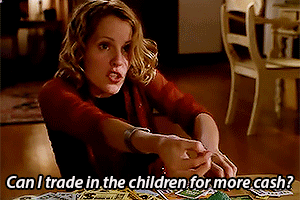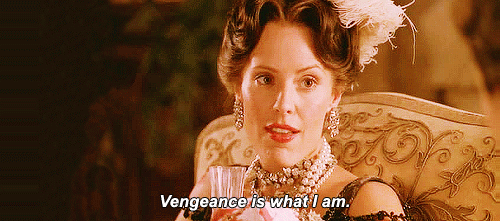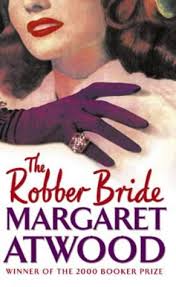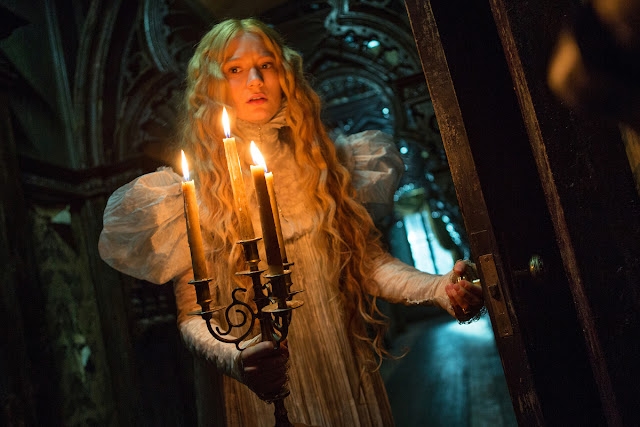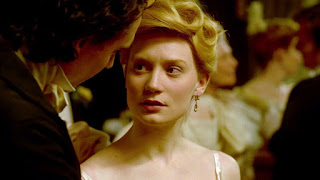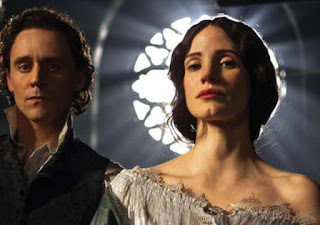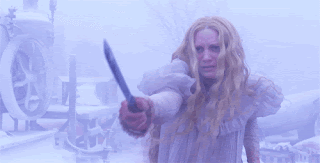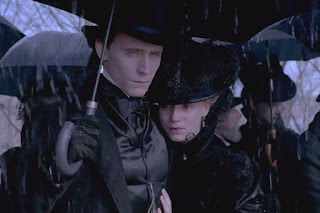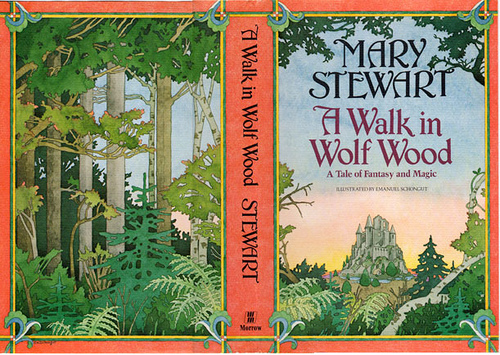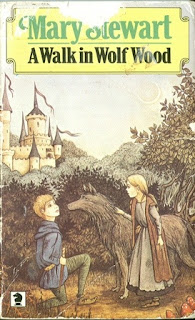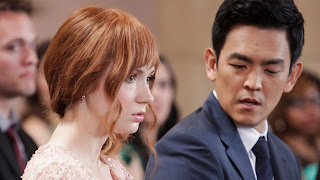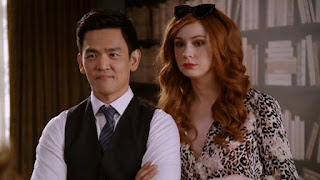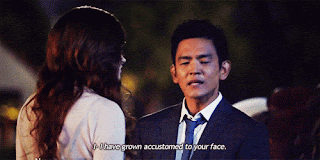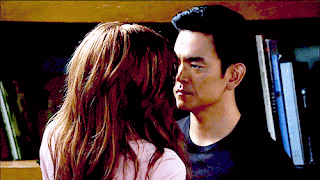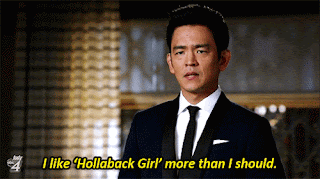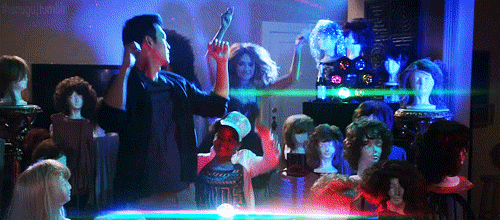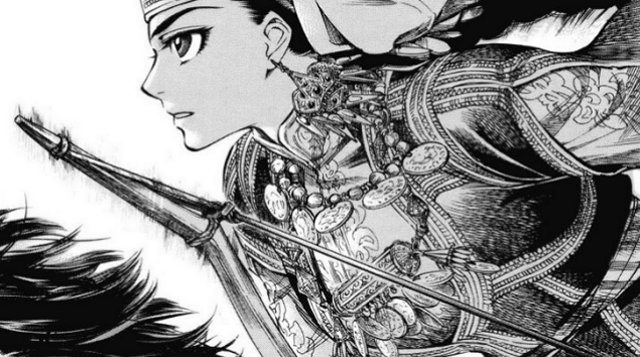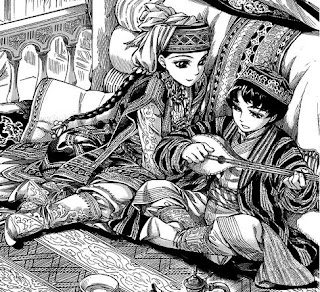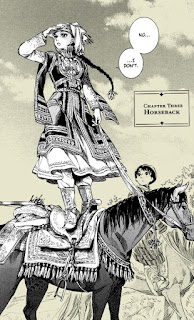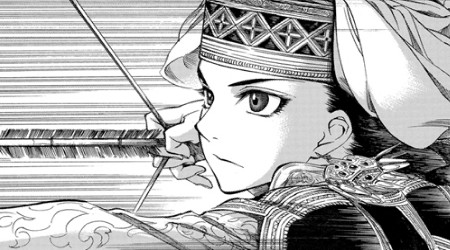Happy almost Halloween, my chickadees! In honor of this most ridiculous holiday, I thought we'd look at a character from a show that feels right at home this time of year. Let's talk about Anya Jenkins, aka the demon Anyanka, Patron Saint of Scorned Women, from Buffy the Vampire Slayer because Anya is super amazing, and because her character arc over five seasons of the show is one of the most compelling in the series. Through Anya we see a meditation on what it means to be human, on what it means to learn humanity and morality and forgiveness, and on what it really means to sacrifice.
I love Anya.
If you don't love her, though, or if you have no idea who I'm talking about, allow me to persuade you. Anya Jenkins (Emma Caulfield) is a character who shows up in season three of Buffy, then again in season four a few times, and becomes a series regular in season five, sticking around until the very last episode. She's one of those characters who goes from villain of the week to beloved member of the ensemble cast, and it's frankly impressive how much characterization they managed to get into her storyline.
When we first meet Anya she's pretending to be a high school student, but actually she's a vengeance demon - as in, she's literally an immortal demon named Anyanka who has devoted herself to casting vengeance down upon unfaithful men. She comes to Sunnydale when Cordelia, understandably angry that she caught her boyfriend cheating on her, wishes that Buffy had never come to Sunnydale.
Anya grants the wish, plunging them all into a hellish alternate timeline where Buffy never came, Xander and Willow are vampires, and Cordelia dies immediately upon arrival. But it's in this alternate universe that Anyanka is defeated: alternate Giles smashes the necklace that is the source of her power, saving the world and forcing Anyanka to live in it as a human high school student.
Obviously this is kind of a funny punishment for a demon. I mean, she's an eleven-hundred years old and now she has to pass her math class. She doesn't really take to it well, and we see her sort of flit through the background of the next season or so being baffled by her attempts to fit in with humans or get her power back.
But then something funny happens. Anya starts to get the hang of being human. I mean, she never really stops being weird, but she also stops entirely resisting the experience. She helps Buffy and her friends out a few times. She goes to prom with Xander. She and Xander start dating. She even saves him from an evil haunted house one time. Little by little, Anya stops trying to become a demon again and acclimates to being human. Which is where things get really interesting.
See, Anya wasn't always a demon. She actually used to be a nice Scandinavian woman named Aud who was distrusted in her village because she spoke strangely and didn't make sense to anyone - which brings up the fan theory that Anya is on the autistic spectrum, something never officially confirmed but seems very likely. Aud fell in love with Olaf the troll hunter, but when he cheated on her she turned him into a troll in vengeance. It was this act of vengeance that brought her to the attention of the head vengeance demon, D'Hoffryn, and got her a job as the "Patron Saint of Scorned Women".
Now that Anya is human again and trapped in the modern day, we get to see how a millennium of being a demon and ignoring any human impulses has done to her. Because here's the thing: as far as we can tell, being a demon didn't actually change anything about Anya's morality. It just gave her the power and immortality to not have to care about laws or rules or right and wrong. Now that she's human, she's not suddenly a more moral person, she just suddenly has to care about these things again. And that's fascinating.
It's fascinating because of how clearly it doesn't come easily to her. Some things come easily, sure. She gets the hang of capitalism right away and becomes a financial wizard very quickly. Anya ends up helping run and eventually owning a local magic shop. Sex is something else that Anya clearly didn't need help remembering. She shows up out of the blue one day in season four and decides she wants to have sex with Xander, which leads to the two of them eventually falling in love.
But love itself is a struggle for Anya. Sex is fine, but love is hard. It's hard because her instinct is to punish and be vengeful. She's out of practice with the little grievances and frustrations that come along with being with someone for a long time. She's having trouble getting back in the swing of assuming the best of people instead of the worst.
And there are other problems too. Like how Anya is terrified of dying now that she's mortal after so long. Or how her first instinct is always to run away from the danger even though she's supposed to be helping fight the danger off. Or how she has no idea how to give moral support to someone without offering to curse their enemies. Little things like that.
Anya grows over the seasons. She never gets less weird or blunt or funny, thank goodness, but she does grow up. She comes to really embrace getting a second chance at being human... At least until she gets her heart broken again. When Anya and Xander's relationship reaches critical mass, it basically explodes under the pressure of Xander's neuroses and fears about the future. Which is funny, because up until that point anyone would have assumed that Anya would be the one calling their wedding off.
No, in the end it's Xander who can't handle the concept of marriage (for surprisingly understandable reasons - he's afraid he'll turn out like his abusive father), leaving Anya heartbroken and alone at the altar. This is when Anya turns back to the only thing that's ever made her feel better: vengeance.
So she goes back to being a demon, but it's clear that this time mass bloodshed and horrible curses just aren't doing the trick. She's too human now, with too much pent up morality. Killing people makes her feel bad because she's lost the hang of being a demon. So what's a monster girl to do when being human hurts but being a demon isn't any better?
Keep going anyway.
That's seriously the lesson we learn from Anya. She comes incredibly close to giving in and giving up in season six, devastated with her broken heart and unsure if she really wants to bother trying any more. But then she does try. She keeps trying. She and Xander eventually reconcile, but that's not the point. The point is that Anya decides, man or no man, she'll keep being human and making the hard choice and choosing to sacrifice.
Which is what brings us to the very end of her story and why I think she's a perfect example of what it means to "learn humanity". At the very end of season seven, when everything is coming down to a terrifying end, Anya doesn't run away like she did the first time. Instead, she stays and fights even though she doesn't have to. As she explains it to Andrew,
"Well, I guess I was kinda new to being around humans before. And now I've seen a lot more, gotten to know people, seen what they're capable of and I guess I just realize how amazingly... screwed up they all are. I mean, really, really screwed up in a monumental fashion...
And they have no purpose that unites them, so they just drift around, blundering through life until they die. Which they-they know is coming, yet every single one of them is surprised when it happens to them. They're incapable of thinking about what they want beyond the moment. They kill each other, which is clearly insane, and yet, here's the thing. When it's something that really matters, they fight. I mean, they're lame morons for fighting. But they do. They never... They never quit. And so I guess I will keep fighting, too."This is the moment when Anya chooses humanity. For all that it was thrust on her without her choosing it before, for all that she still doesn't really "get it", for all that she's made a lot of questionable choices and done a lot of really horrible things, Anya in the end chooses to be human. She chooses to stand and fight because it's the right thing to do.
And that gets down to something really important: humanity is a choice. It's a lot easier to let go of humanity than it is to grab it and hold on. Because holding on to our humanity means embracing and acknowledging the things that are hard and unpleasant in our lives. It means refusing to run away from our problems and admitting that we have no idea what we're doing.
Anya is all of that wrapped up in a hilarious and cranky ball.
It's worth noting too that Anya is unique for being a female character doing all of this. We're relatively used to stories about male characters with horrible pasts being redeemed and becoming human, but not so much about female characters. Anya was a vengeance demon for over a thousand years. She has a past. She's scary. She's strong. And yet she chooses to be human in a way that never compromises her strength and past, but instead adds to it.
I love Anya. I love that she never really gets the hang of social interactions but she does come to understand love and family and hope. I love that the surface stuff doesn't matter in the end. What matters is that Anya gives up her own life to save the world. She knows it might not help, she knows that the odds are stacked so far against her. But she chooses humanity anyway.
As Xander says, "That's my girl. Always doing the stupid thing."

